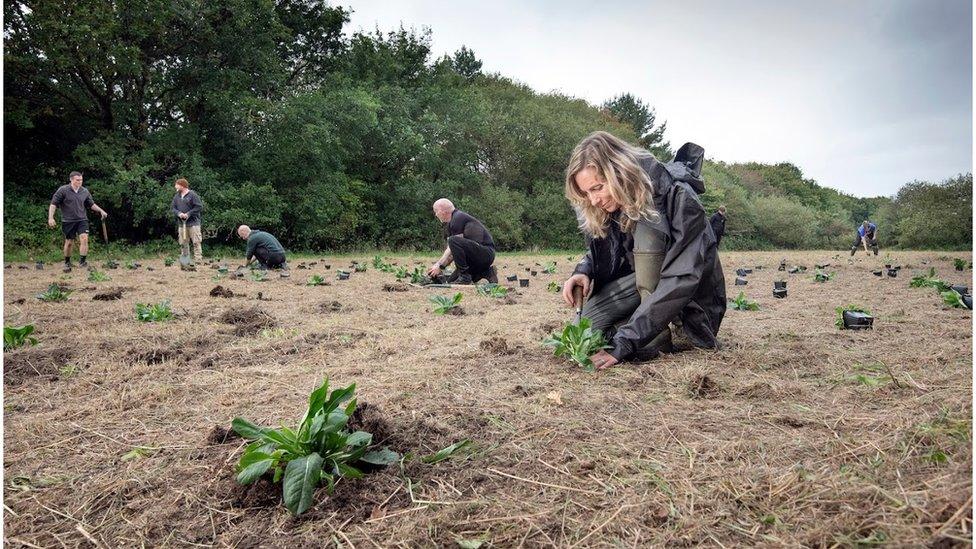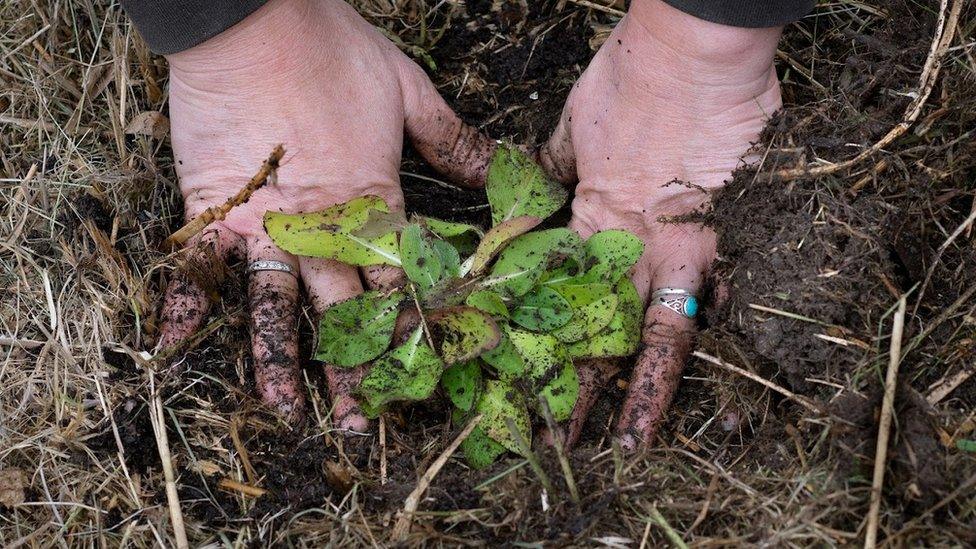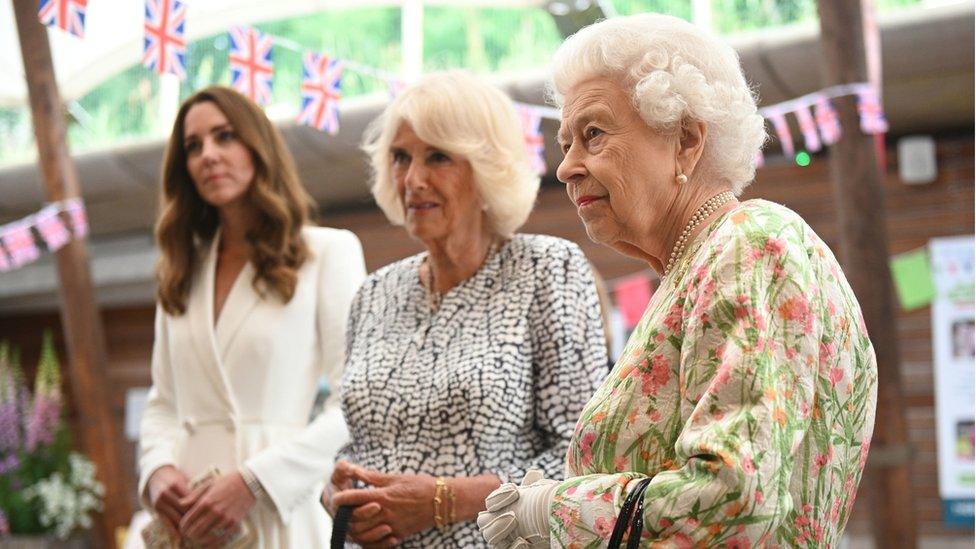Military veterans plant wildflowers for threatened butterfly at Eden Project
- Published

Plants were positioned on the wider Eden estate, just beyond the biomes.
Military veterans have helped plant 400 wildflowers at the Eden Project to benefit a threatened butterfly.
The attraction said devil's-bit scabious was a native wildflower that the threatened marsh fritillary butterfly relied almost exclusively on.
The planting was part of nature-based courses aimed at helping military veterans and others facing mental health issues.
Plants were positioned on the wider Eden estate, just beyond the biomes.
The National Wildflower Centre (NWC) at Eden cleaned, dried and stored the seeds, which were collected from various locations across Cornwall, with the permission of landowners.
The plants were then grown from seed and cared for by the veterans and other attendees of Eden's nature-based therapy programmes.

Four-hundred devil's-bit scabious have been planted in the Eden Project's grounds
On its website, external, Butterfly Conservation said the marsh fritillary was threatened across Europe and in the UK was now confined to western Britain and Ireland.
Stephanie Knights, NWC projects manager, said: "The plants typically thrive in damp and acidic marsh-like environments, which have unfortunately faced a decline in the UK due to increasing temperatures, decreasing rainfall and intensive agriculture.
"The threatened marsh fritillary butterfly relies almost exclusively on these unassuming wildflowers for their food source, and these flowers were once widespread in the wild across Britain and Ireland.
"Now, in Cornwall, this is restricted to three main areas: the Lizard Peninsula heaths, mid-Cornwall and Bodmin moorlands."
It is hoped the plants will increase the "wildflower corridor for the butterfly".
Ms Knights added that Eden's outer estate provided "perfect conditions" for the plant.

Follow BBC News South West on Twitter, external, Facebook, external and Instagram, external. Send your story ideas to spotlight@bbc.co.uk.
Related topics
- Published14 September 2022

- Published3 August 2022

- Published16 June 2022

- Published29 April 2022
